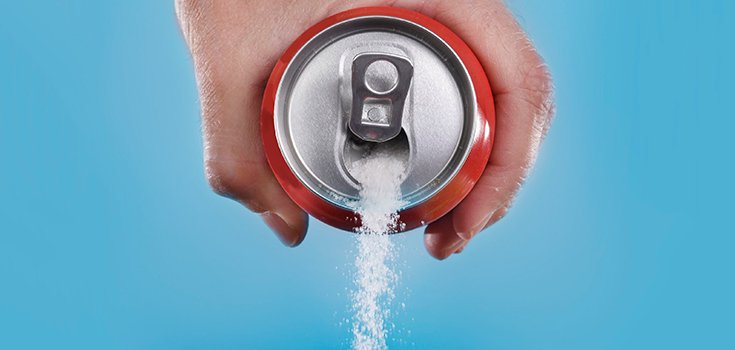Is a Soda Tax the Solution to Reducing Sugar-Consumption Worldwide?

Health experts in Australia say that the country should follow the UK in introducing a tax on sugary soft drinks. While politicians such as Australia’s Trade Minister say they are not “fans” of the tax, celebrity chef Jamie Oliver has told the Australian government to “pull its finger out,” and describing the UK’s plans as “bold and brave.”
The UK will introduce the tax in 2 years in order to fight rising obesity, applying it to drinks with a sugar concentration of over 5 grams per 100mL, with another higher rate for even more sugary drinks. France, Belgium, Hungary, Mexico, and Scandinavian countries have already implemented similar measures for many years, with varying degrees of success.
Professor Anna Peeter from Deakin University says that evidence from Mexico suggested that a well-designed tax is likely to reduce the consumption of sugary drinks, and may trigger reformulations by the beverage industry. “We need to make healthy food more affordable than junk food,” she stated.
However, whether these changes would make soft drinks less unhealthy, or even worse due to an addition of artificial sweeteners (in place of sugar), is unknown. In addition to this, Denmark’s attempt at a sugar tax ultimately failed and was scrapped.
The Health Problems Associated with Sugar
So why is sugar, when added to foods, so harmful? Diets high in sugar, as well as some grains and milk, are “insulinotropic,” and thus raise levels of IGF-1. High IGF-1 is implicated in diseases such as cardiovascular disease (CVD), diabetes, some cancers and even age-related muscle loss.
Additionally, unabsorbed sugar has a tendency towards tangling in proteins and fat, which is a process called glycation. Collagen is one of the most vulnerable proteins to glycation, and this irreversible tangling can result in skin wrinkling, stiff arteries and organ damage.
On the other hand, However, the “infamous” Paleo Diet limits sugar consumption, forbids the consumption of dairy and most grains, as well as processed foods, and is therefore far less insulinotropic.
This is not merely theoretical. For example, an epidemiological study in 21 countries found that sugar is a likely risk factor in breast cancer, particularly in older women. Diets high in sugar may also raise the risk of pancreatic cancer in women with some degree of insulin resistance. Avoid sugar to avoid cancer.
Further, a key mechanism behind the development of diseases such as cancer and CVD is the production of free radicals (which antioxidants help to defend against). One study from the State University of New York reported that excess sugar increases the production of free radicals. Healthy adults given a drink containing 75 grams of glucose, which is the equivalent of around two cans of cola, experienced a significant rise in blood levels of free radicals after one hour, and a doubling after two hours. There was also an increase in an enzyme that promotes free radical generation, and a 4% drop in vitamin E levels.
In another study, 10 healthy people were assessed to compare blood sugar levels with the ability of their neutrophils, a type of white blood cell, to destroy disease-causing invaders. A dose of 100 grams of sugar, from glucose, sucrose, honey, and orange juice, essentially “paralyzed” the ability of neutrophils to engulf bacteria.
As for something more child-specific, when high sucrose foods, artificial colors and some preservatives were removed from schools over a 7-year period, there was a significant gain in learning ability. Out of 124,000 students unable to learn math and grammar, 75,000 were then able to learn these skills after the diet changes were made. These improvements would have the potential to open up many career opportunities, as well as improving quality of life in general.
Overall, with the negative effects of added sugar noticeable at all ages, perhaps measures such as taxes do have more benefits than drawbacks.
